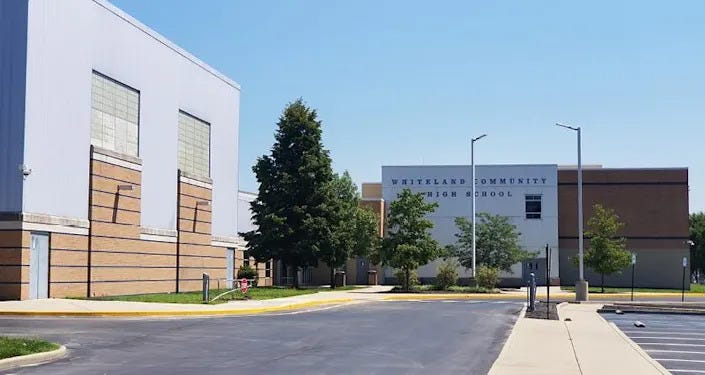Komal Chohan: What Really Happened At Whiteland Community High School, And What's Next?
Whiteland Community High School has been described by alumni and current students as a hostile environment for any student that does not fit the norm.
Komal Chohan
March 14, 2022 | 3.5 min. read | Opinion
A hateful attack and altercation occurred at Whiteland Community High School in Indiana a couple of weeks ago that made a Sikh student feel uncomfortable in his own skin.
In fact, he has not felt comfortable in his own skin at Whiteland Community High School for a while now. These same sentiments were expressed to me by many youths since I had initially posted about the incident of racial/religious discrimination at the school in late February.
Students from the local middle school and high school said that they get called racial slurs every week and they are constantly feeling singled out in crowds. However, it was this one case that ended up garnering widespread attention and is now making the Sikh community of Central Indiana really question what we are doing to protect the youth that attend our local schools.
This incident was just one part of a series of altercations between two groups of students that have been brought up to superiors at the school multiple times. Students from both groups have stated that the school does not do anything to resolve the conflict, but instead punishes all those involved equally by suspending them.
According to other messages from alumni, this punishment technique has been implemented by the school for years to address bullying, despite students saying that it is not working. It is the school’s basic responsibility to address ongoing conflicts within their premises and come up with solutions to reduce any further violence. That has been systemically missing here.
Since the root of the problem was never being resolved, students were taking it to social media to continue bullying each other and even post fights that have occurred at the school. Overall, Whiteland Community High School has been described by alumni and current students as a hostile environment for any student that does not fit the norm.
Youths that attend the school have stated that they do not feel comfortable or welcomed for a variety of reasons. For example, there is an absence of education on Sikhi in schools to teach other students about their background and articles of faith.
In March 2020, Sikh Coalition did fight to include Sikhi in the Indiana social studies curriculum, but it is not a requirement; it is just a suggestion. The local community must push the district to make it a requirement.
Students also noted a shortage of community events at the school to make them feel more empowered at school, and to also bridge the gap possibly between recent Sikh immigrants and Sikhs born in America.
They share that the biggest tool they need is a platform to express their concerns to school decision-makers so that a proactive approach is taken to bring change. They share that they have made suggestions in the past to teachers, but they do not ever seem to be implemented.
That is where the local community is now realizing we were lacking, and we need to step it up.
Recently, Sikh Coalition and LOK-E, a local Sikh youth-based organization, held a town hall where current students, alumni, and local community organizers came to listen and voice their concerns.
It was nice to see the passion from LOK-E members Upkar Singh, Paramjyot Singh, Harkirat Singh, and Tajeshwar Singh and their strive to educate themselves so LOK-E can take the fight to the schools.
I have a lot of faith in LOK-E and I am hoping that more of the local community is now ready to back them and their future endeavors because the school-age youth need this organization.
In this town hall, we learned that Sikh Coalition has put out Sikh awareness programs for schools to battle ignorance and they have anti-bias and leadership workshops. These resources are all readily available for anybody that is dealing with discrimination at schools. For any new local organization, the leadership programs are important because we need to empower the youth to speak up about their problems and the local community so they can address concerns with schools in a productive manner by themselves.
At a point, we all must realize that our activism needs to be alive outside of social media to implement long-term change in our own communities. In this case here, social media drew the attention of the school and the superintendent, but that only goes so far.
This was one religious discrimination case of many that has been brought to my attention in the past month. The local Sikh community of Central Indiana must continuously apply pressure and advocate for what we want with the help of our local youth-based organizations, like LOK-E.
Komal Chohan obtained her BA in Criminal Justice and is currently working on her JD in the US to become a Civil Rights Attorney. She works with local shelters to help domestic violence survivors and runs Sikhi educational seminars through local schools. You can find her on Twitter at @yourlawyerkomal.
Baaz is home to opinions, ideas, and original reporting for the Sikh and Punjabi diaspora. Support us by subscribing. Find us on Twitter, Instagram, Facebook, and TikTok at @BaazNewsOrg. If you would like to submit a written piece for consideration please email us at editor@baaznews.org.


